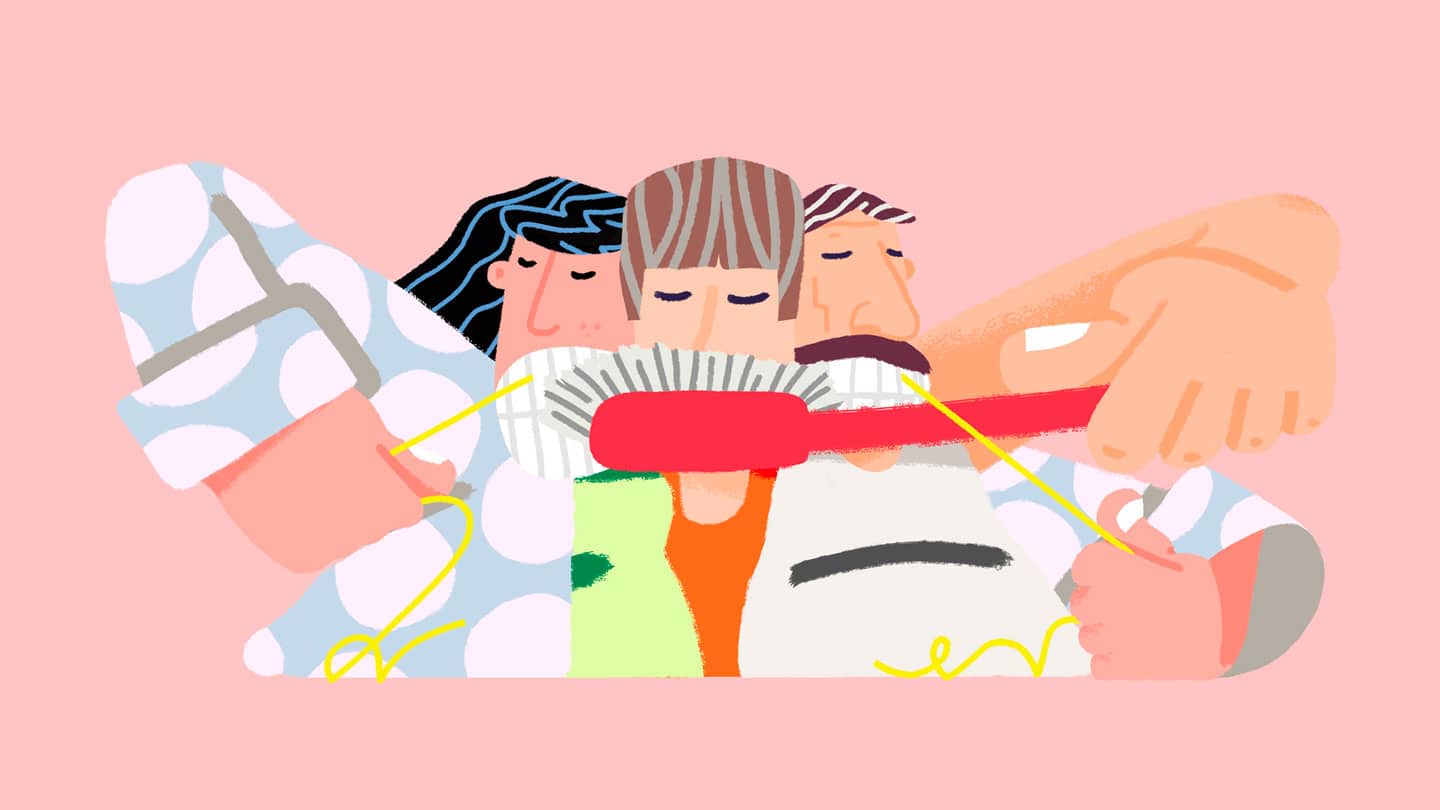A cleaning is a procedure performed by a dentist or dental hygienist to remove dental plaque and tartar. Cleanings keep your mouth and teeth healthy. If you don’t have any specific issues, you probably need a cleaning every 9 to 12 months. But you may need cleanings much more often if you have oral health issues or certain medical conditions, or if you struggle with dental hygiene. What determines how often you need a cleaning? And why are regular cleanings so important?
The inside skinny on cleanings and how often you really need one.
- A dental cleaning is a procedure that removes dental plaque and tartar from your teeth, both above and below your gums.
- On average, people with healthy mouths need a cleaning every 9 to 12 months.
- Tartar starts to form again within a few weeks to a few months after a cleaning, depending on how healthy your mouth is.
- Your diet, toothbrushing habits, certain medical conditions, and medications can all affect how fast tartar forms.
- You can schedule an appointment to have a CHD dental hygienist perform a dental exam, schedule cleaning, and create a custom cleaning plan based on your oral health needs.
What’s a cleaning?
A dental cleaning is a procedure that removes tartar and dental plaque from your teeth, both above and below your gums. It involves two steps: scaling and polishing. Teeth cleaning uses a whole set of tools, whether it’s done the traditional way with curettes or automatically using the latest ultrasound technology. Polishing, which can be done before or after scaling, uses two techniques that can be combined: polishing paste applied directly to your teeth or air polishing.
How many cleanings do you need per year?
There’s no one right answer. Some people start developing more tartar a few weeks after a cleaning. For others, it takes several months.
How long it takes depends on several factors, including:
- Your diet – sticky, sugary foods encourage tartar.
- Your tooth care habits – how often you brush, floss, and use fluoride mouthwash.
- Your overall health – conditions like diabetes, autoimmune disorders, or periodontitis are risk factors.
- Your medications – dental problems can be a side-effect of anti-depressants, anti-coagulants, and other medications.
- Your saliva and its quantity and quality – exposure to saliva is what calcifies dental plaque into tartar.
In other words, the perfect cleaning schedule is as unique as you are.
That’s why we recommend an appointment with a hygienist, who can provide personal recommendations for a consistent and realistic follow-up schedule that fits your needs and your budget. If you have gum disease and struggle to keep your back teeth clean, for example, offering you one cleaning every 12 months won’t be good enough.
Most patients with no dental or medical issues or other risk factors and who can do enough at-home care need a cleaning about every 9 to 12 months.
Is it better to have a dentist or a hygienist do your cleaning?
Our patients often ask which dental care providers are qualified to perform dental cleanings. In Switzerland, 3 types of providers are qualified to perform dental cleanings and provide other preventive care:
Hygienists
Cleanings are a huge part of what hygienists do. In fact, hygienists are the real dental cleaning specialists. In Switzerland, they complete 3 years of training on tartar and dental plaque removal and other preventive procedures.
They are also trained to provide personalized advice on tooth care and oral hygiene.
At Clinique d’Hygiène Dentaire, all cleanings are performed by certified dental hygienists who are members of the Swiss Dental Hygienists society.
Dentists
In Switzerland, dentists spend three years studying general dentistry, including a survey of preventive care and dental hygiene. Unlike hygienists, they are not preventive care specialists.
Just like orthodontists are great at working with dental appliances but would struggle to fill a cavity, most dentists have hygienists handle their patients’ cleanings and other preventive procedures to make sure they get optimal care.
Preventive care assistants
Preventive care assistants are dental assistants who have completed a 2-week training course and clinical training. They are qualified to remove tartar and dental plaque – above the gums only – under a dentist’s supervision.
They are not qualified to treat patients for receding gums or to take x-rays without supervision. Since preventive care assistants don’t have the same level of training as hygienists, we recommend avoiding their services.
At CHD, our goal is to give all our patients the very best in dental care and hygiene. So all our cleanings are performed by the real dental hygiene and preventive care specialists: hygienists.
FAQ
What is tartar?
Tartar is dental plaque, a sticky film that coats your teeth, that has been calcified, mostly due to contact with saliva. It contains bacteria, sugars, acids, and salivary proteins.
Does everyone have tartar?
Everyone’s body produces tartar. It is most commonly found on the insides of your bottom incisors and the outsides of your top molars, close to where saliva is secreted.
But my old dentist said I don’t really have tartar…
It’s true that some lucky people make less tartar than average!
But that usually applies only to the tartar found above your gums. You might still have tartar lurking under them. That’s why it’s essential to have a hygienist examine all the areas where tartar can hide. And that requires personalized care.
Regular checkups with a hygienist mean you can keep tartar buildup to a minimum for shorter appointments and lower costs.
Why does tartar need to be removed?
Tooth care is self care! When tartar stays on your teeth, it causes gum irritation (gingivitis) that can make your gums bleed and eventually lead to gum recession and even tooth loss (periodontitis). And it’s painless, making it a silent menace. That doesn’t mean everyone who has tartar will lose teeth, but over time tartar makes tooth loss a real risk, one that patients often miss until it’s too late.
Tartar build-up also makes it easier for more tartar to form and stick to your teeth, starting a vicious cycle.
Even more dangerous, tartar contains bacteria that can migrate into your blood vessels and infect organs in other parts of your body. Some patients even develop infections in their heart, hip, or knee implants due to tartar. So it’s key to see a hygienist and stop the problem before it puts your health at risk.
It’s particularly important for at-risk patients, including seniors and people with conditions like diabetes or autoimmune disorders, to avoid unnecessary stress to their immune systems. Athletes even get their teeth cleaned before starting a series to make sure they stay healthy.
And tartar literally stinks! The anaerobic bacteria that live in it can cause bad breath that no amount of brushing, gum, or special accessories can beat, since it can’t be removed by at-home care.



